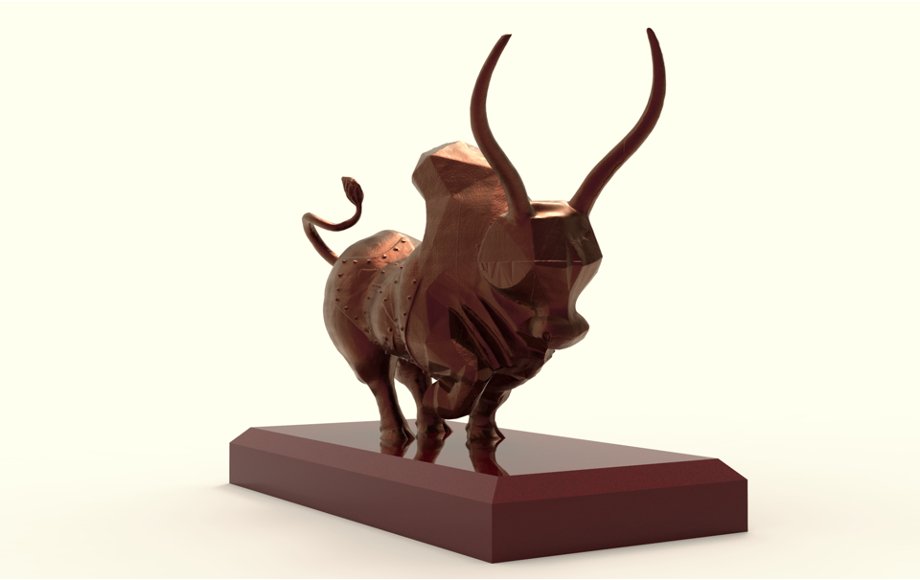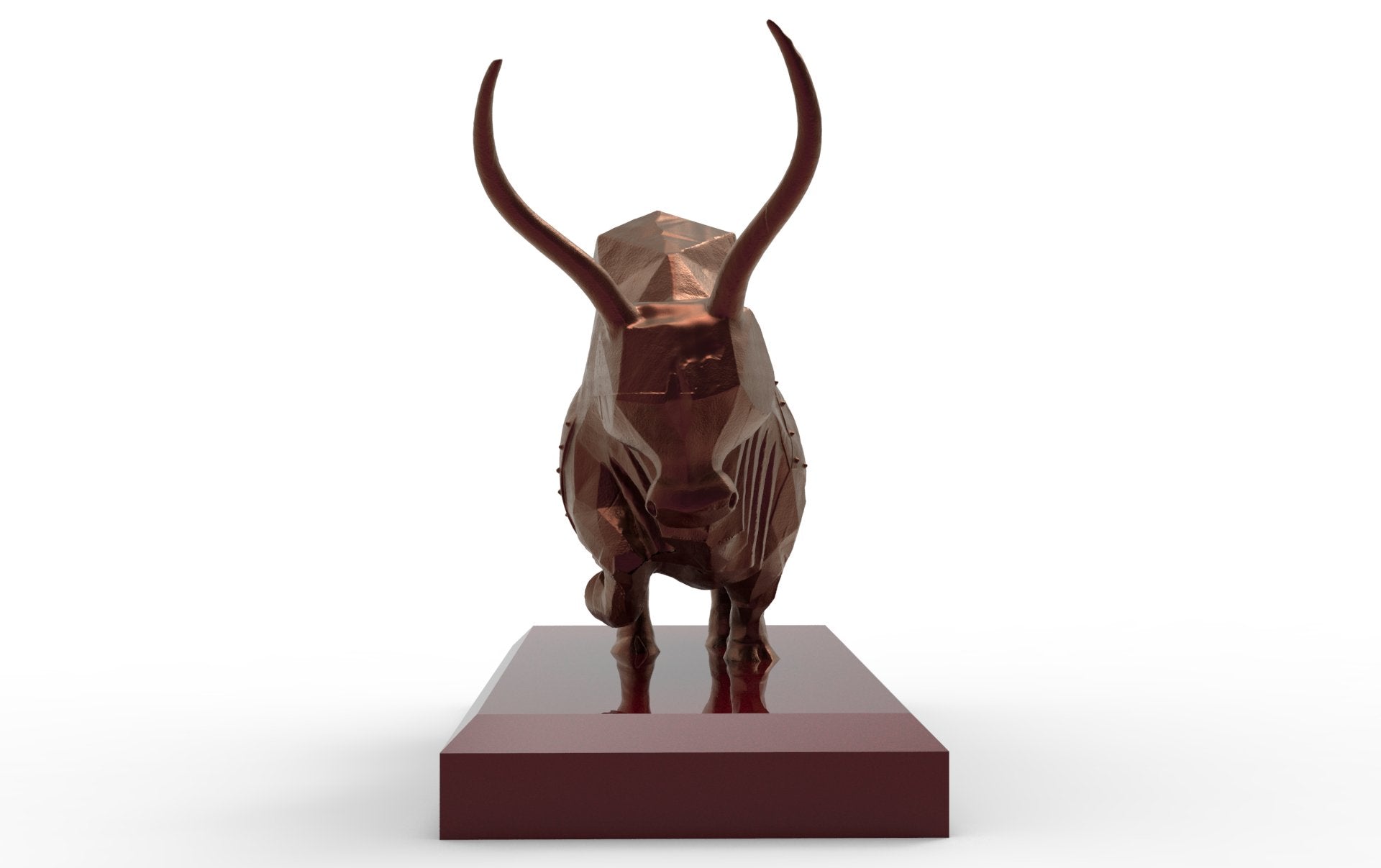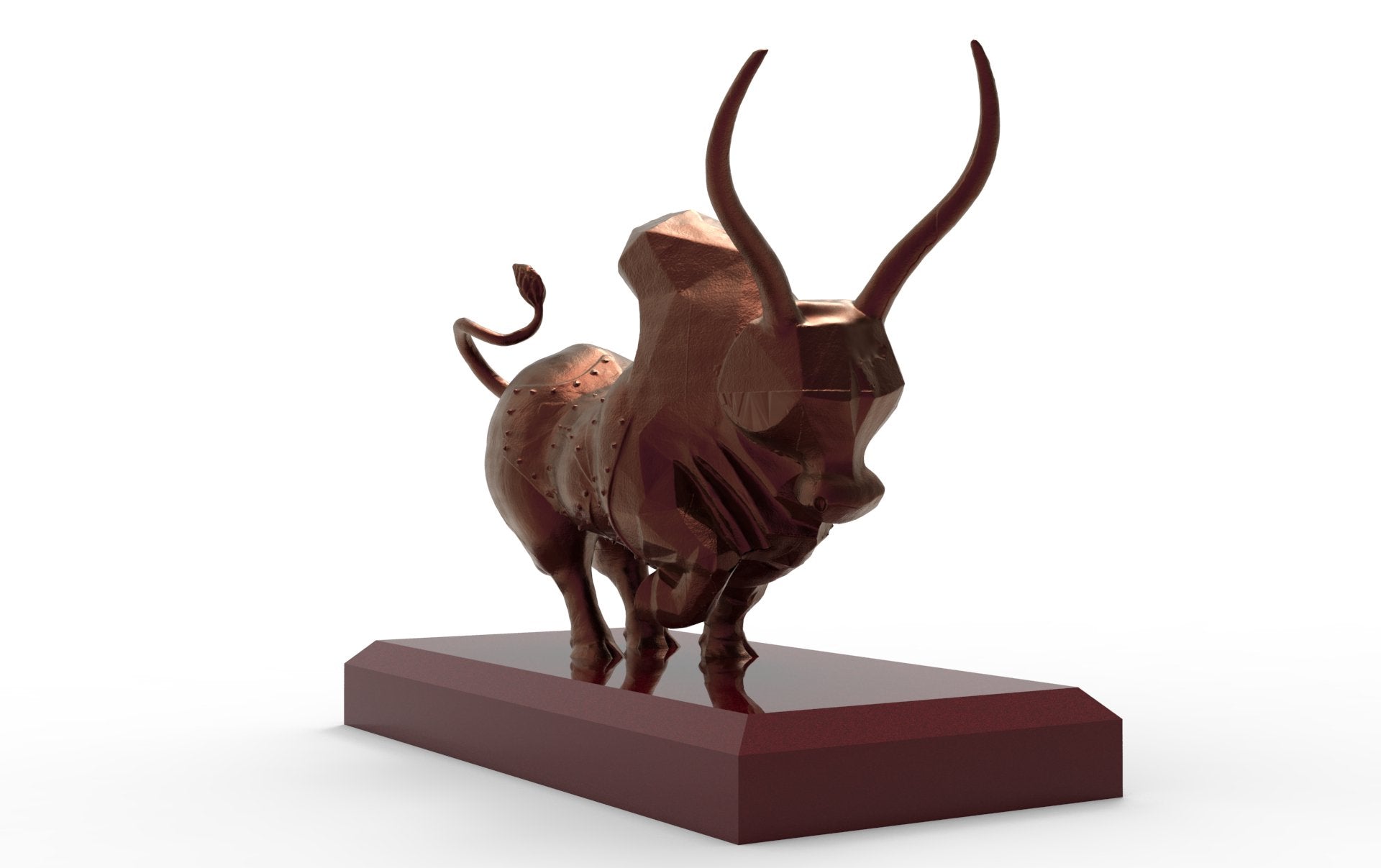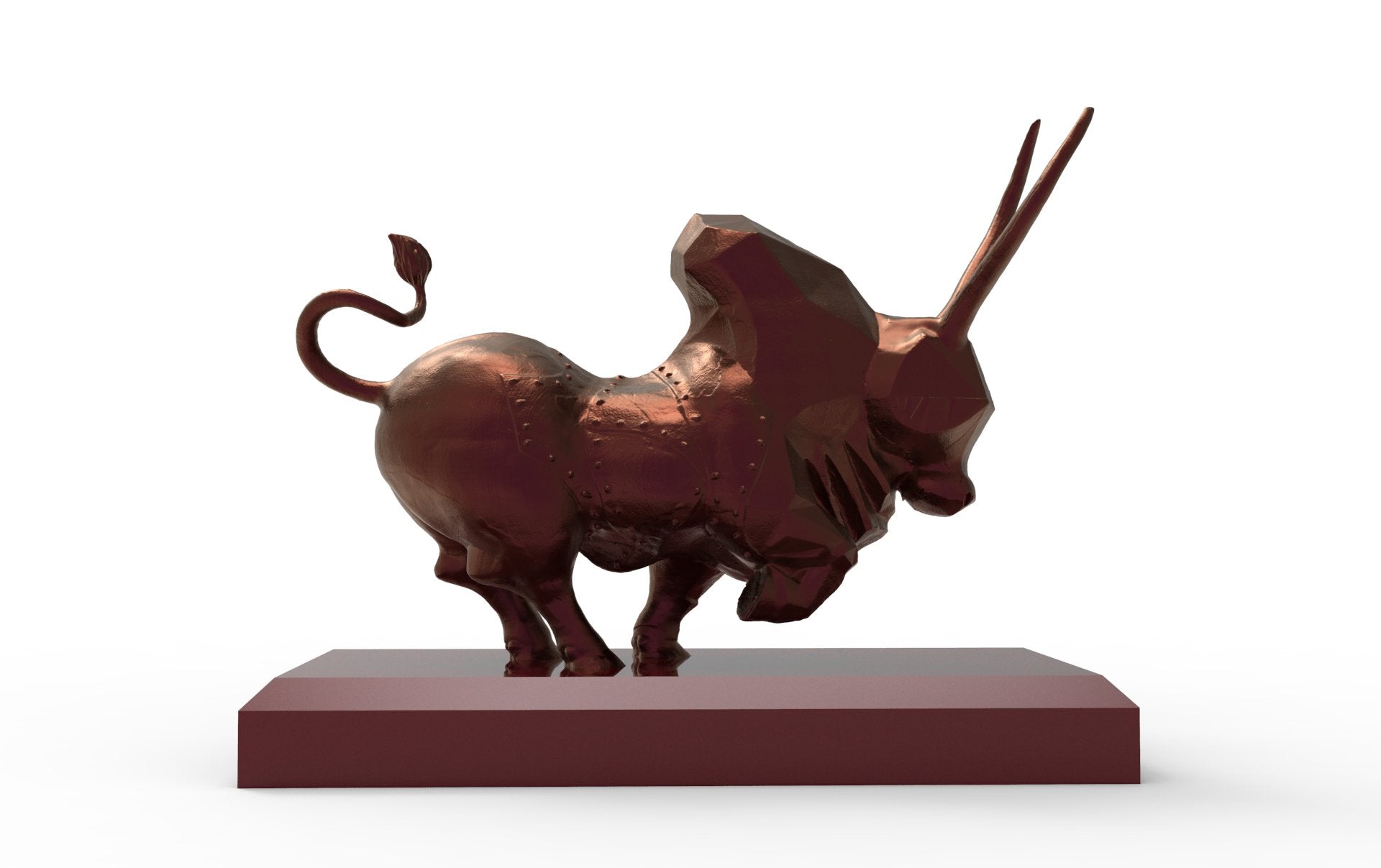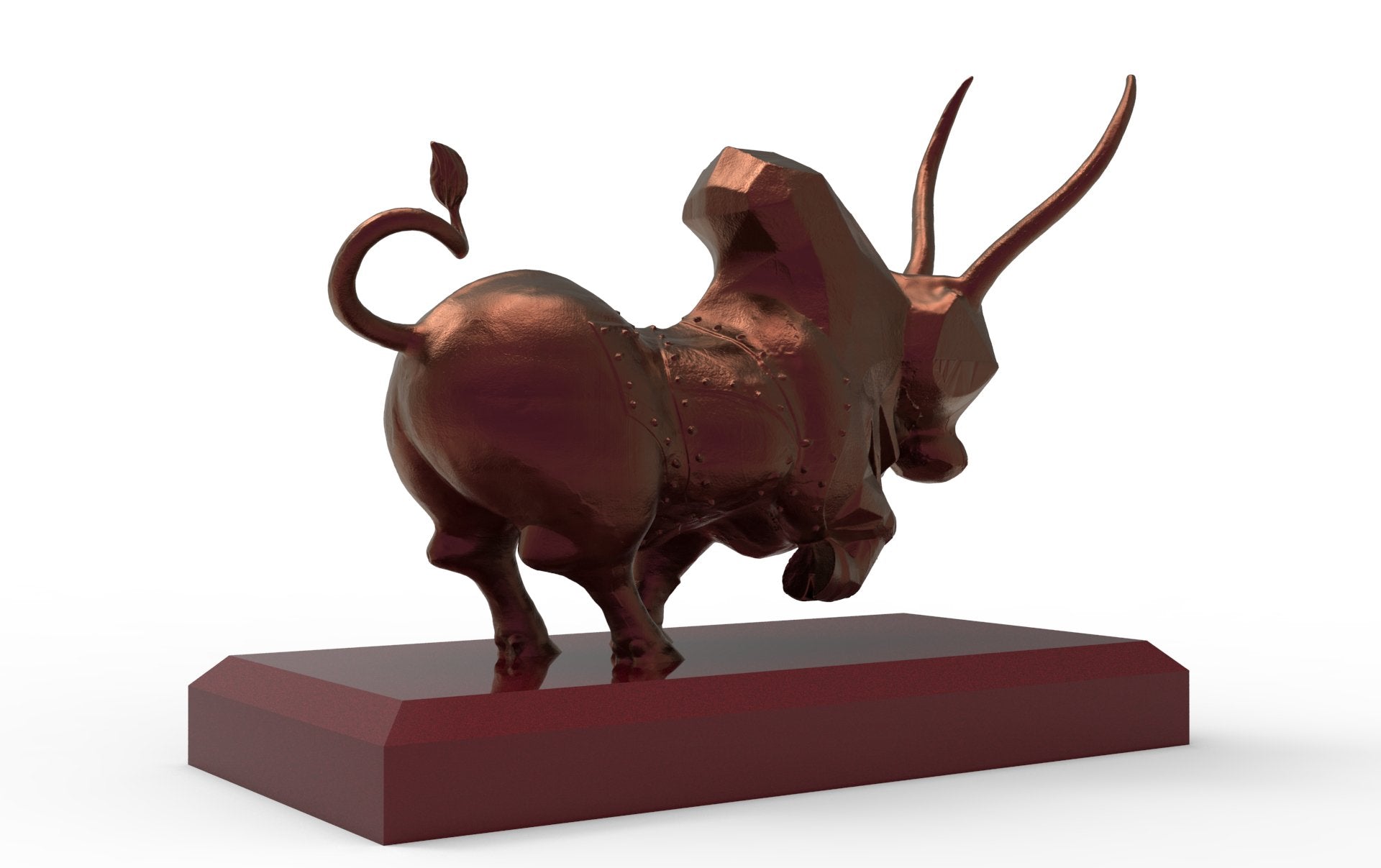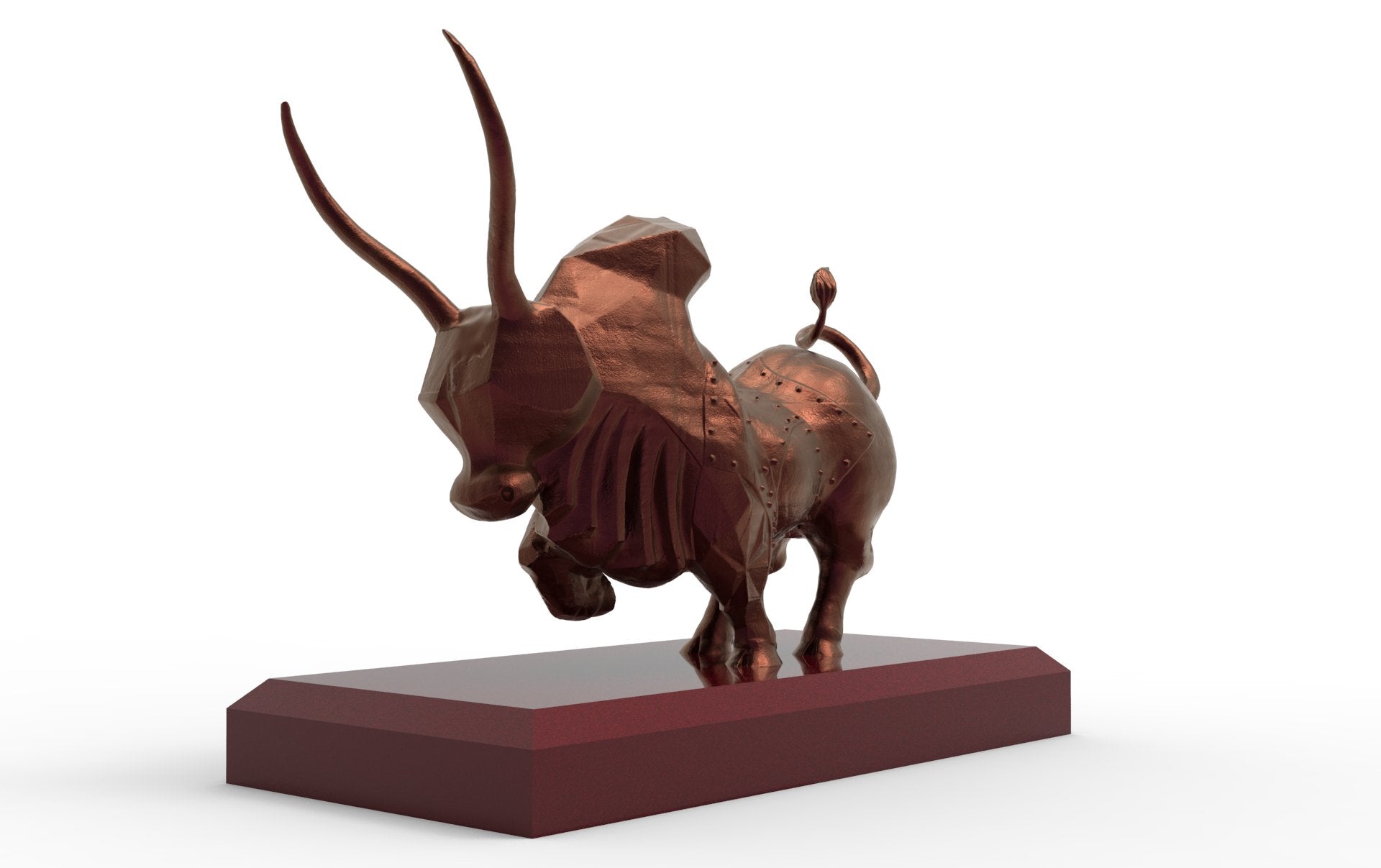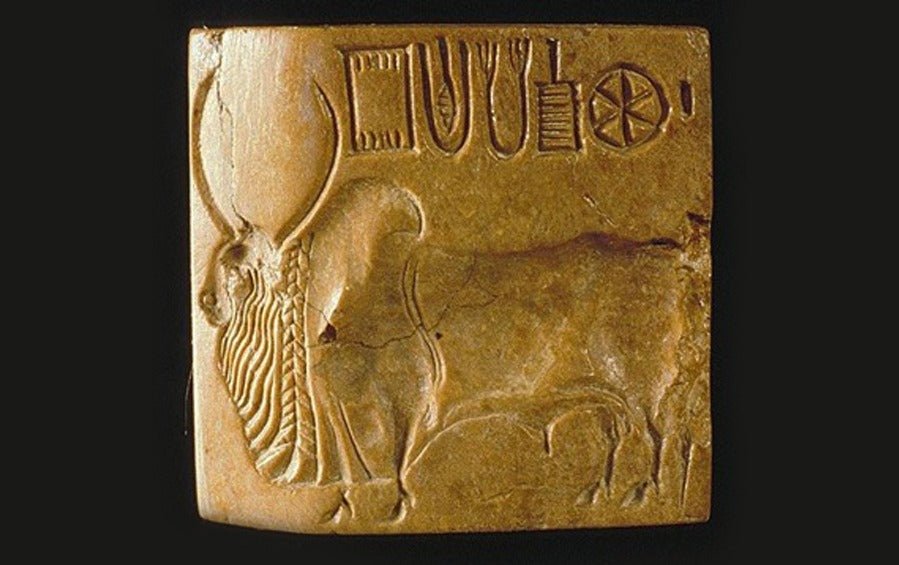Majestic Indus Valley Zebu Bull | Aluminium | 5” W
The famous Bull-seal, also called the Pashupati Seal of Indus Valley Civilization was found at the Harappan site of Mohenjodaro. The Bull-seal is known to be dated back to around 2200-2500 BC. Seals were extensively used as an authentication mechanism during the trade of goods by the Harappans.
The Majestic Zebu Bull, with its heavy dewlap and wide curving horns is perhaps the most impressive motif found on the Indus seals. Generally carved on large seals with relatively short inscriptions, the zebu motif is found almost exclusively at the largest cities of Mohenjo-daro and Harappa.
The humped bull is a recurring theme in many of the ritual and decorative arts of the Indus region, appearing on painted pottery and as figurines long before the rise of cities and continuing on into later historical times. The zebu bull may symbolize the leader of the herd, whose strength and virility protects the herd and ensures the procreation of the species or it stands for a sacrificial animal.
Zebu Bull Sculpture in Mumbai | Conceptualised by Sculptor Arzan Khambatta
Indic Inspirations proudly present a replica of the Zebu Bull Sculpture, proudly made by our metal artisans of Moradabad. Commissioned by the Hinduja Group, IndusInd Bank unveiled a majestic sculpture of its brand identity, the ‘Zebu’ Bull at Rajni Patel Chowk, in the central business district of Worli in Mumbai in Jan 2021. The sculpture of the Zebu bull signifies the heritage of the Indus Valley Civilisation and is a part of BMC’s public-private art initiatives. The ‘Zebu’ bull embodies the vibrant and progressive community of the ancient civilization, synonymous with the energy of Mumbai! It is also meant to propagate a sense of positivity and the undaunted spirit of Mumbai's residents.
Conceptualised by globally acclaimed Mumbai-based sculptor Arzan Khambatta, the ‘Zebu’ is a dramatic expression of an artist’s imagination.
